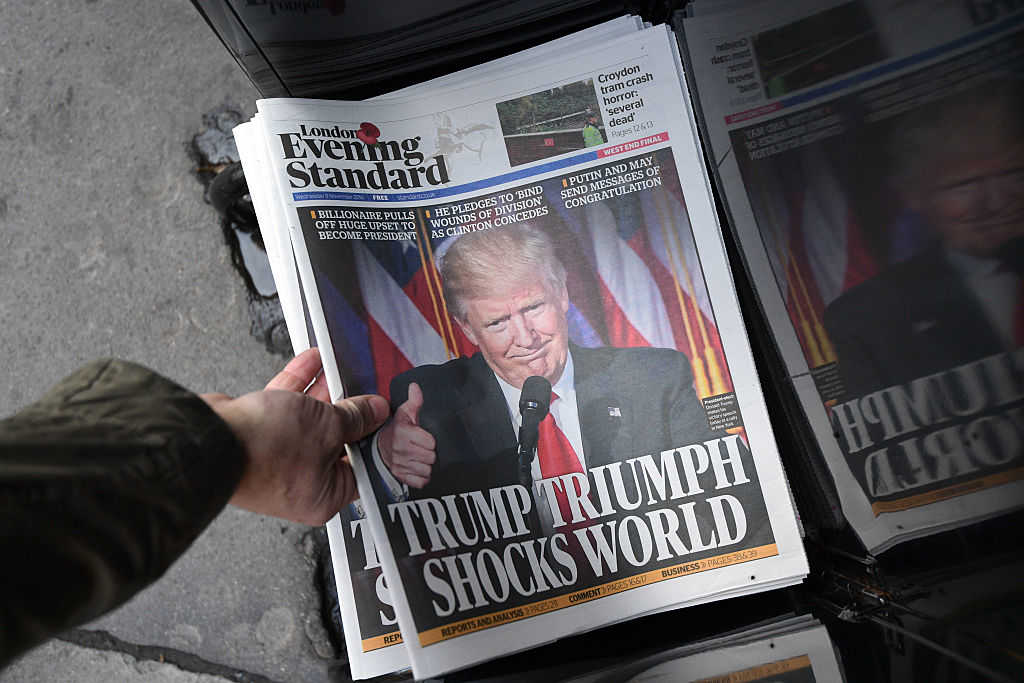Republican presidential candidate Donald Trump’s intense efforts to court evangelicals were apparently wildly successful, as the Christian cohort showed up en force at the polls Tuesday to support the president-elect.
In fact, according to exit polls, white evangelicals voted for Trump by a 81-16 margin — the largest showing by that cohort for a GOP candidate since they chose George W. Bush by a 78-21 margin in 2004, The Washington Post reported.
And consider that FiveThirtyEight ran a report during Tuesday’s election, saying evangelicals are “potentially among the strongest demographic groups for Trump” and that the cohort explained, in part, why he did so well in certain key areas.
The outlet reported that evangelicals are a powerful force in some states like Georgia and Florida. In the former, they make up about a third of the state’s voters, while one-in-five Florida voters are believed to have been evangelical. All that in mind, consider the fact that 88 percent of evangelicals in Georgia chose Trump and only six percent opted for Clinton.
It’s been no secret that Clinton hasn’t been a fan favorite among the majority of evangelicals due to her progressive ideals, though there was previously speculation that evangelicals — who have been widely divided over Trump’s brash commentary and behavior — possibly wouldn’t come out for him as strong. Exit polls, though, appear to be painting a very different picture.
While it’s clear Trump dominated among evangelicals, Kevin den Dulk, political science professor at Calvin College, told Christianity Today that the seemingly higher support for Trump among evangelicals this cycle might have some deeper roots.
“The story here continues to be continuity in the strength of evangelical support for GOP candidates, rather than greater intensity,” den Dulk said. “I suspect there’s some underlying changes in polling responses that would make Trump’s evangelical support seem greater than it has in the past.”
Despite an evangelical divide over Trump, there were signs well before the election that the majority of white evangelicals had already made their minds up months ago regarding whom they would vote for. In fact, a Pew Research Center survey conducted during the summer found that 78 percent of white evangelicals planned to vote for Trump.
Plus, Trump ramped up his evangelical outreach in recent months, while Clinton seemingly ignored the cohort; both acts appear to have had a negative impact on the Democratic nominee. President Barack Obama, on the other hand, didn’t take evangelical outreach for granted during his own presidential runs. As a result, he had about 10 percentage points more support among that cohort than Clinton did this cycle.
Evangelicals reportedly made up 27 percent of voters in the 2016 race, according to preliminary exit polling data; this is similar to their share in 2012, ABC News reported.
Conservatives have spent months voicing concern over the U.S. Supreme Court, abortion and other related issues — issues that led many to say they simply couldn’t back Clinton in the race.
Among the more vocal voices on this issue has been “The View” host and “Fuller House” star Candace Cameron Bure; while she publicly didn’t endorse a candidate, she told Faithwire that the Supreme Court was the most vitally important issue to her in the campaign — and she’s not alone. Others have cited religious liberty concerns, among other related issues.
—
Other Must-Read Stories:
– The Bible Like You’ve Absolutely Never Seen It Before: A Stunning, 2,000-Page Graphic Novel
– NFL Star’s Touching Tribute to His Grandma Reveals the Amazing Lessons She Taught Him About God
– Infamous Bank Robber Who Was on the FBI’s 10 Most Wanted List Had the Most Incredible Transformation



